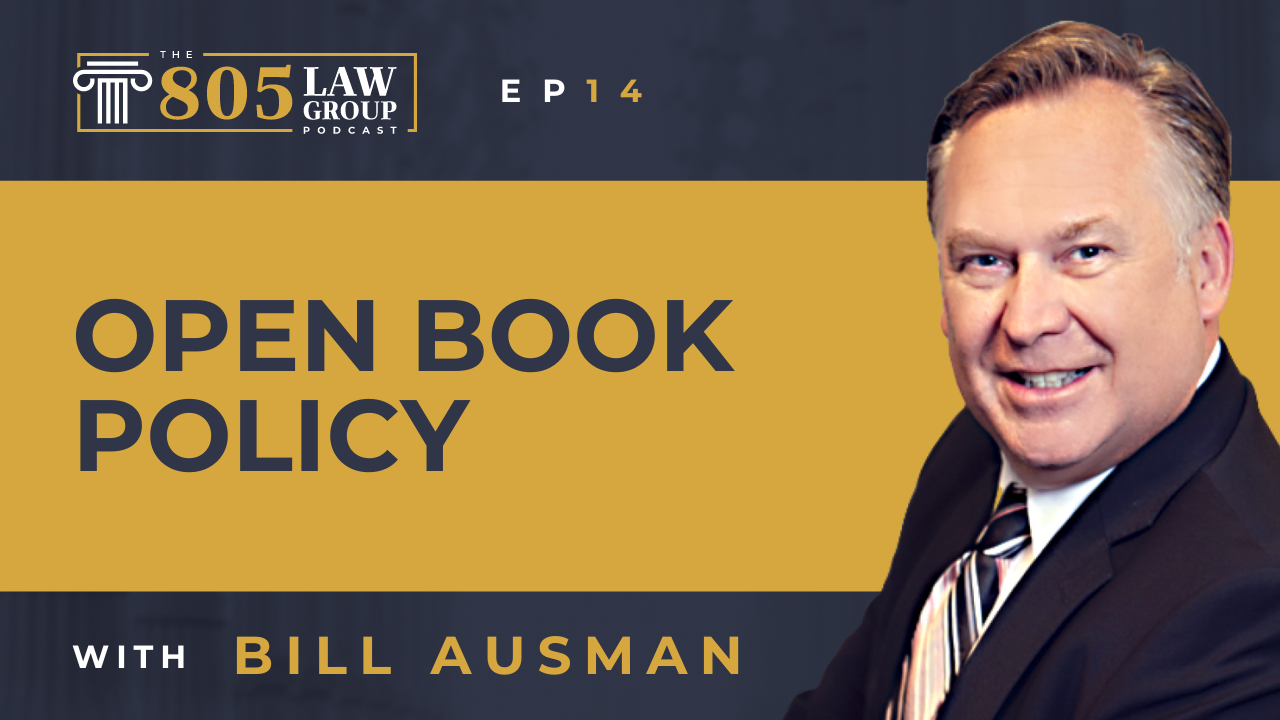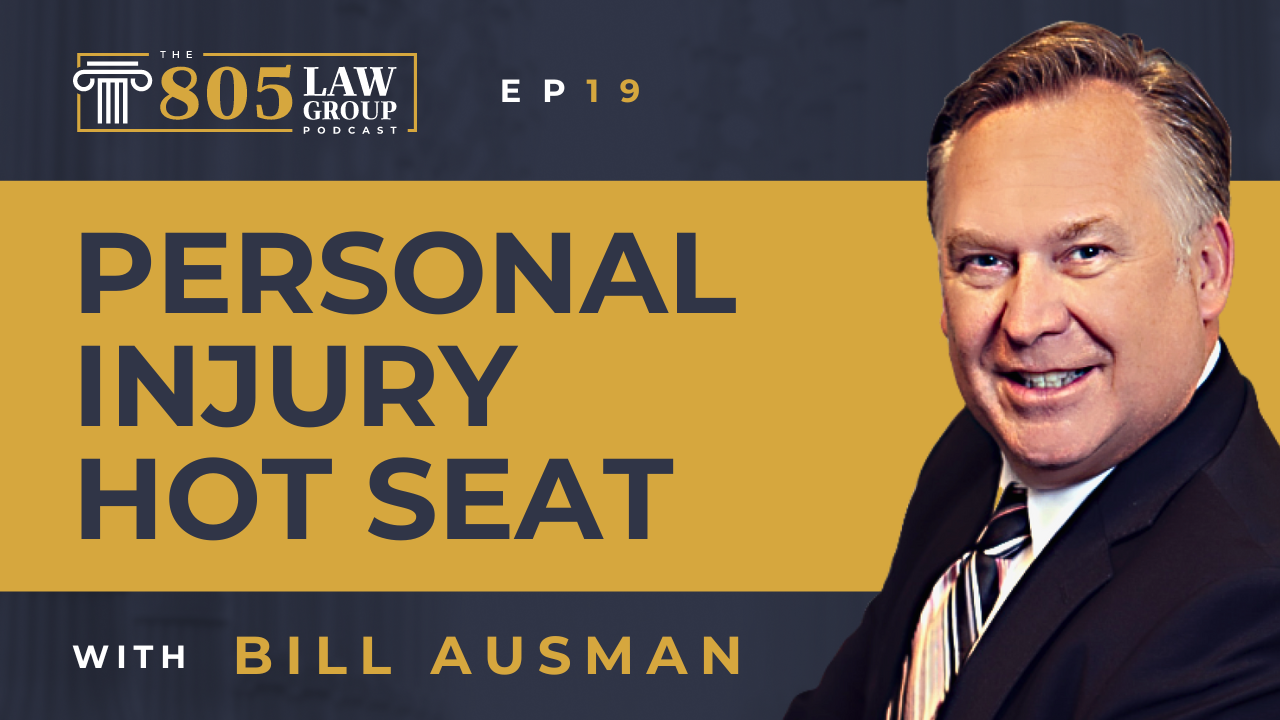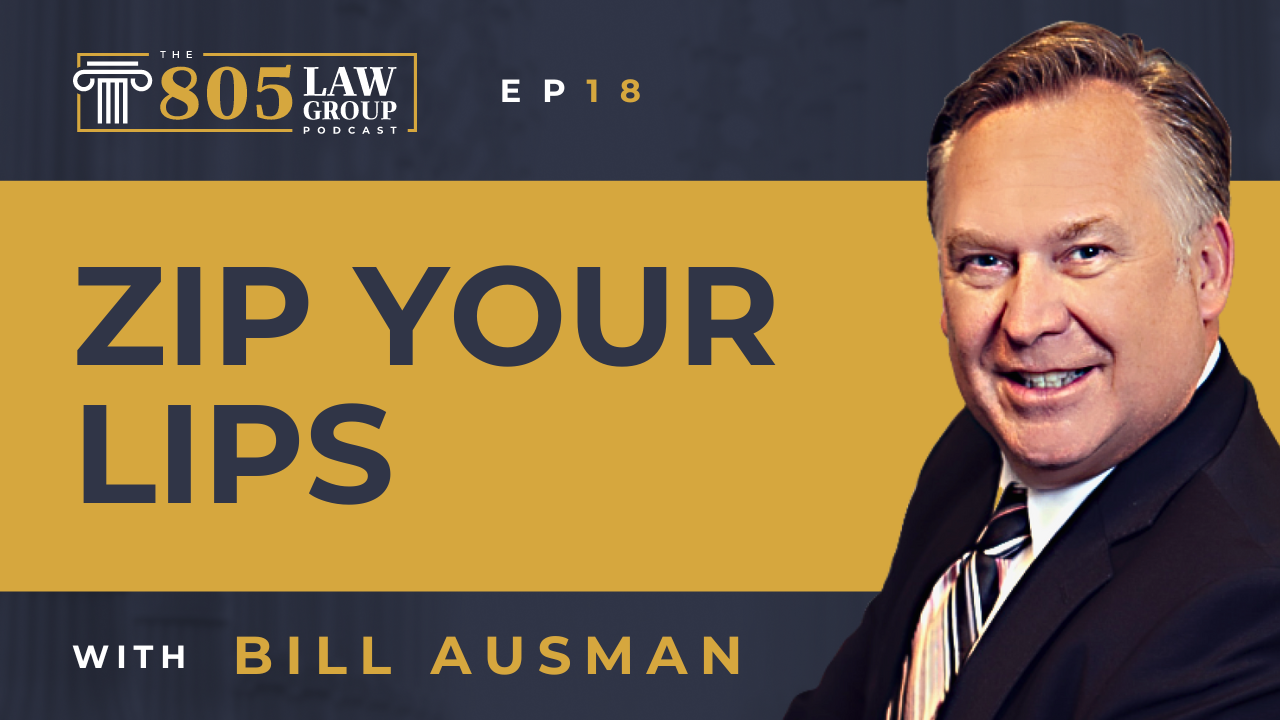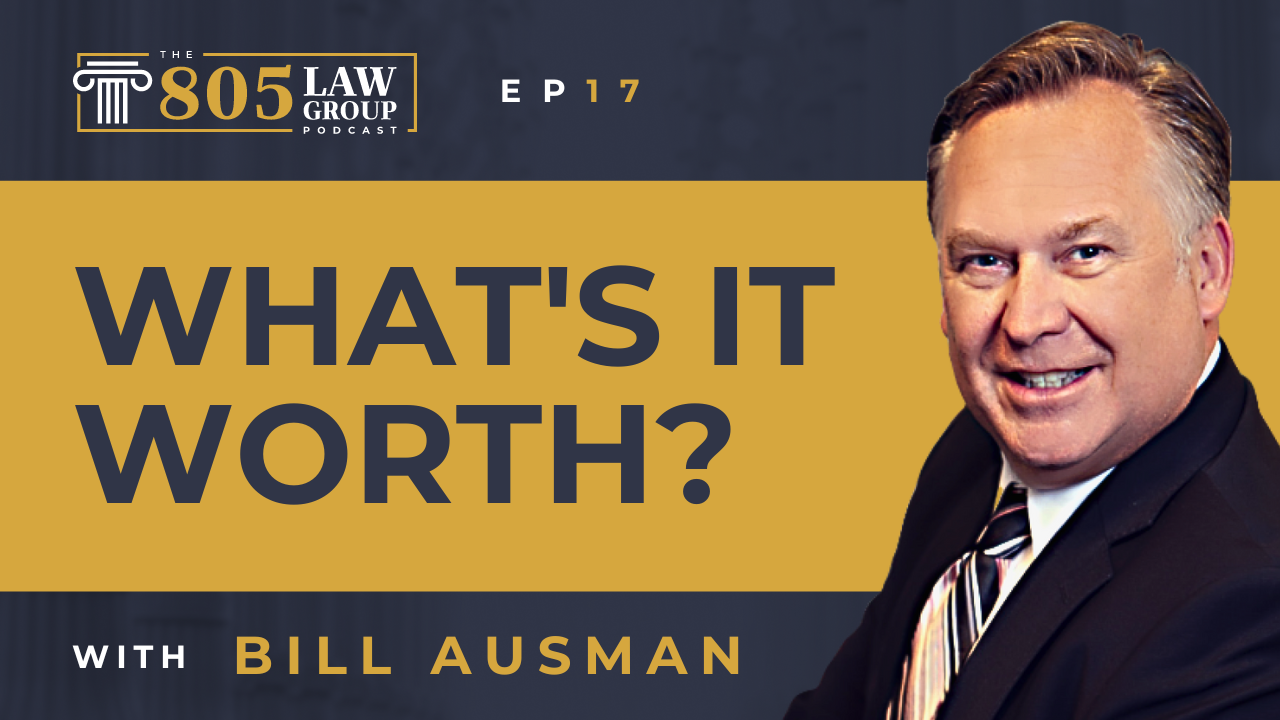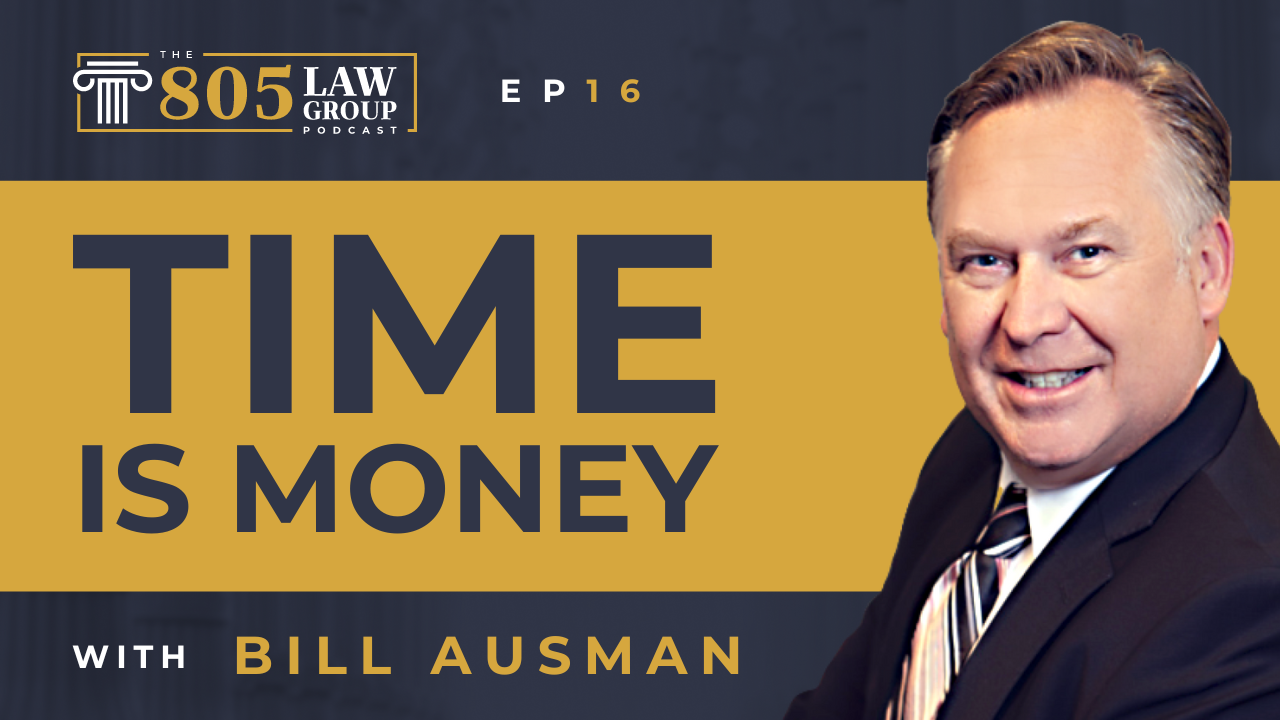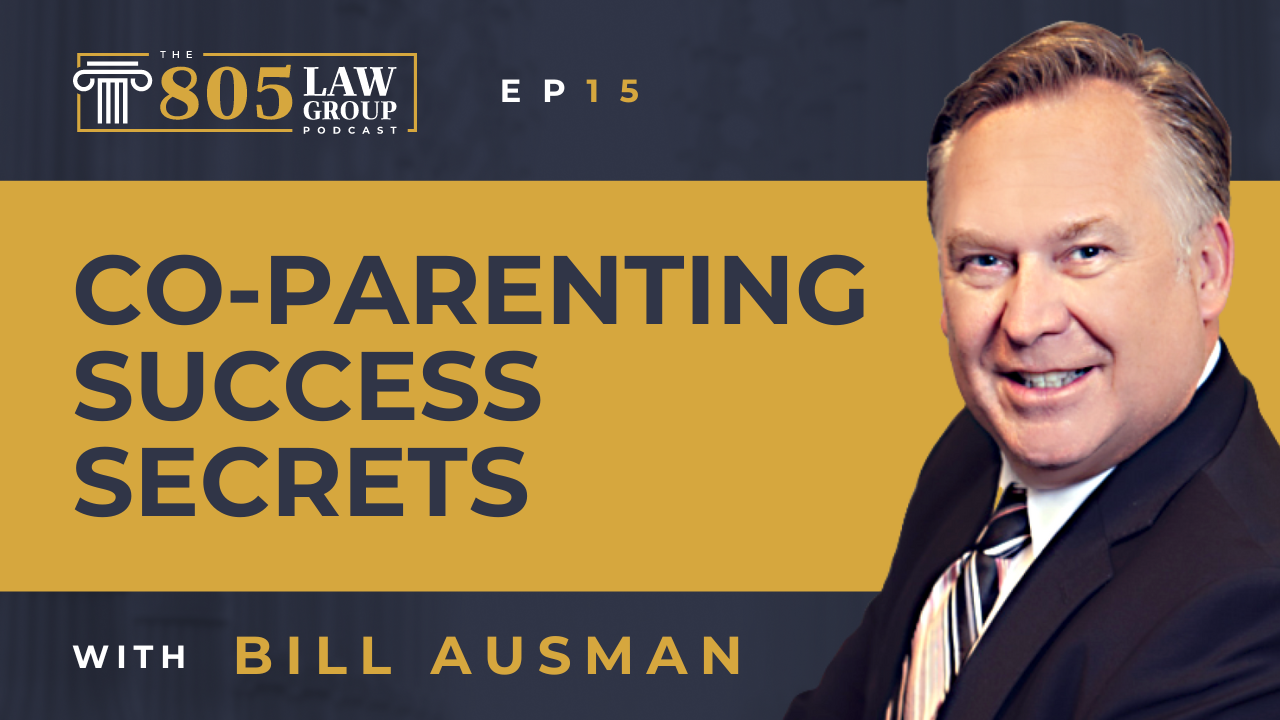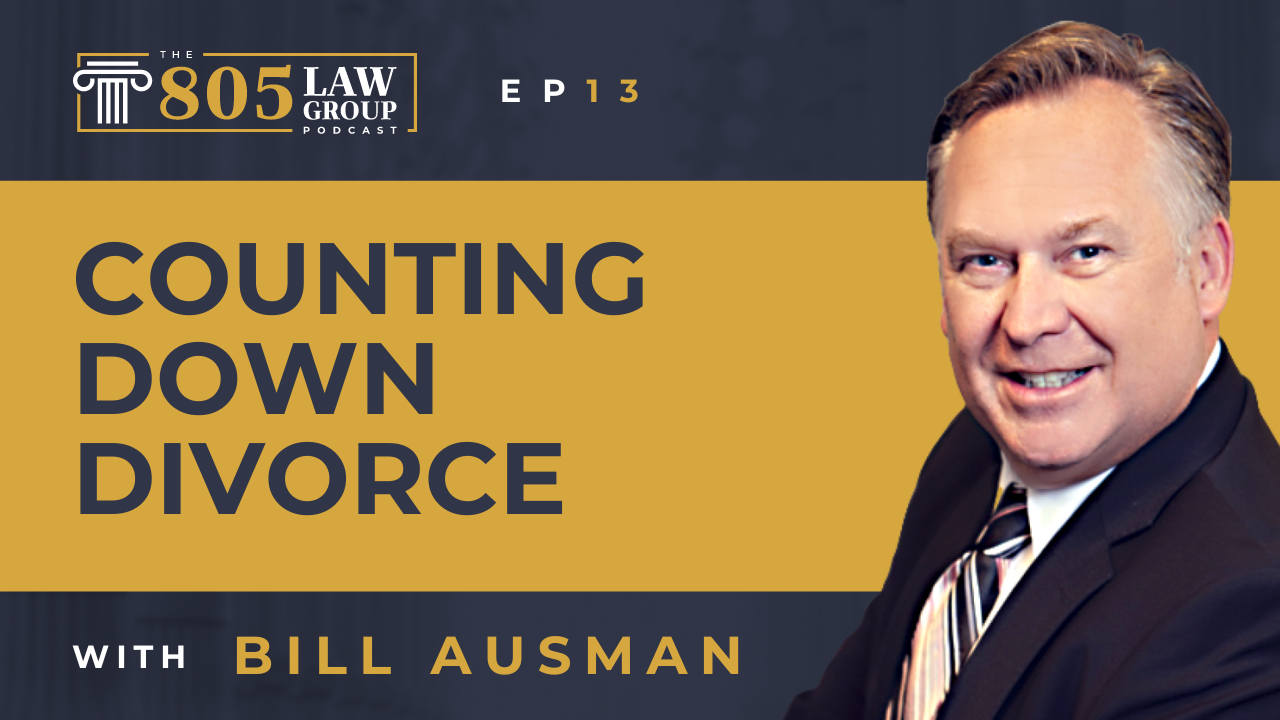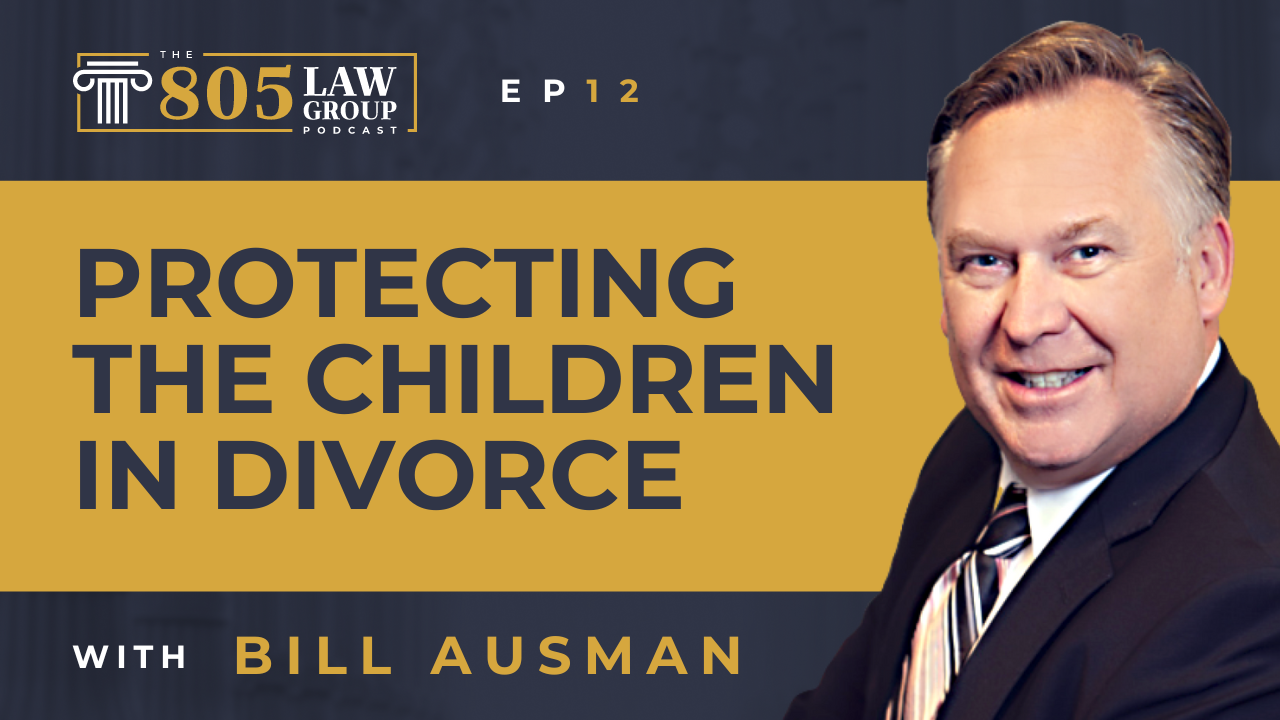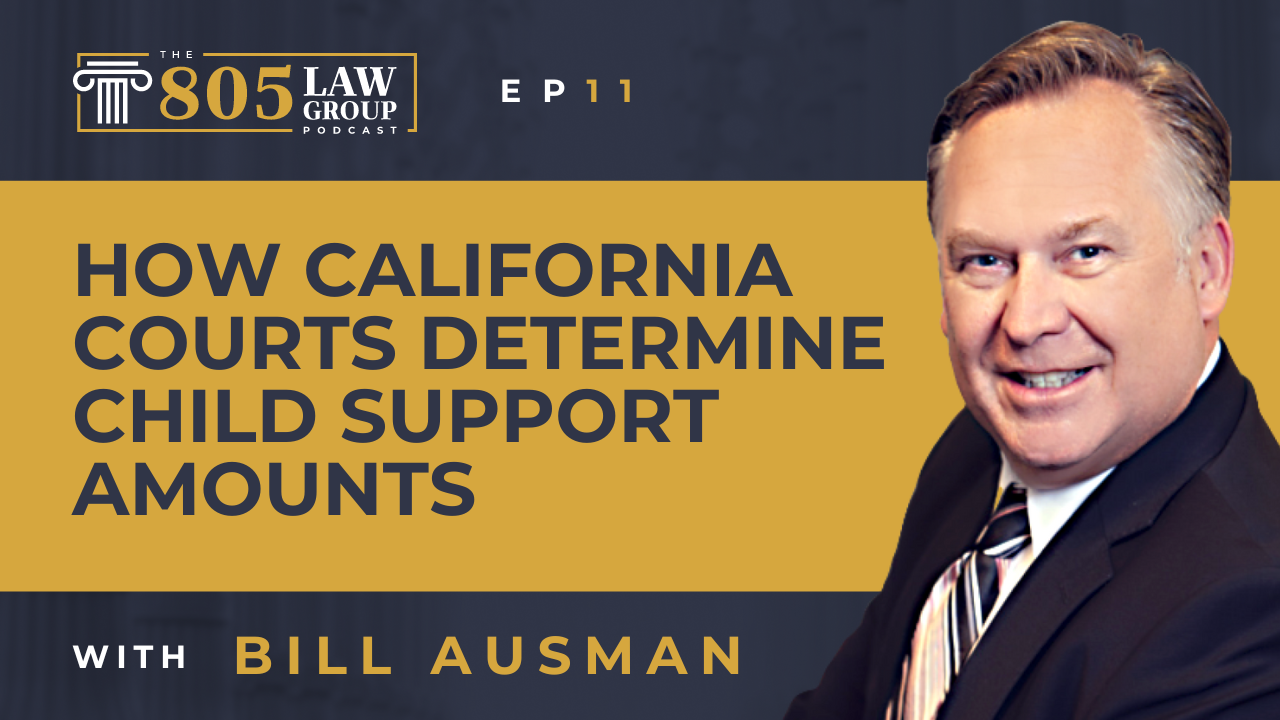[00:00:00] Dean Mignola: Welcome to the 805 Law Group podcast. We’re your hosts. I’m Dean Mignola.
[00:00:06] Bill Ausman: And I’m attorney Bill Ausman.
[00:00:08] Dean Mignola: Today we’re going to talk about what information you should share with your Attorney and what maybe you should keep private from your friends and family when you’re going through a divorce case. So Bill, let me ask you, when working with an Attorney during a divorce, what are the key pieces of information that are just crucial for clients to share in their case?
[00:00:30] Bill Ausman: There are a lot of really important pieces of information that are really required. We’re in the process of breaking a partnership and dividing those assets. So information about those assets, and those debts are incredibly important. So that type of information is really important. And then if we’re talking about custody and visitation, that also is incredibly important.
[00:00:55] Bill Ausman: We’re looking at what is the best interest of the kids. So in that [00:01:00] situation, we may be looking at some very intimate details about what the other parent’s doing, whether it’s the use of a substance or drinking or you know, what activities are they engaging in? Is this affecting the children? Is their behavior affecting the children? So that type of information is really important.
[00:01:19] Bill Ausman: In California, we don’t look at fault, so that’s not as important, but what is important is that best interest standard. So what is affecting the kids? How is that affecting them? We’re not there just to make the other parent look bad, but we’re there to provide really great information so the court can give you great custody, great financial orders so that you can move forward with your life.
[00:01:45] Dean Mignola: Okay. Now, is there legal or financial information that clients commonly overlook providing to their attorneys? And how can this oversight really impact the proceedings?
[00:01:56] Bill Ausman: Yes, quite often people will forget [00:02:00] really common things. They’ll think, Oh, that was just my credit card. I don’t need to provide that. Yes, you do, unless you have a prenuptial agreement all accounts are community property during the term of the marriage. And even if they are separate property, you have a duty to disclose that information. So it’s really important to get all the accounts.
[00:02:17] Bill Ausman: Everybody thinks about the bank account, the check count, those are common things. The tax returns, those are the common things that people forget is, oh yeah, I’ve got an old Citibank account, or I have an old student loan, we need all of those accounts.
[00:02:31] Bill Ausman: So it’s really important that people go through all their accounts, get all that information. If you have an old retirement account from an old job, we still need that information. Hey, maybe your parents left you a piece of property or interest in a trust, we need all that information. So those are common things that will cause the divorce process to be more complicated and in some situations could cause a penalty for the [00:03:00] client.
[00:03:00] Bill Ausman: If you willfully fail to disclose assets or debts or opportunities, you can be held liable and have to pay the other person a 100% penalty of that asset.
[00:03:13] Dean Mignola: We know some people are very private people and they’re very sensitive to their privacy. But when it comes to the divorce, how should clients navigate the balance between the privacy and being open with their Attorney?
[00:03:26] Bill Ausman: With your Attorney is one person, you need to be very open with, you need to let them know where the skeletons lay in the closet. There’s Attorney client privilege, you are the holder of that privilege, so it’s not going to go anywhere else.
[00:03:39] Bill Ausman: So it’s important to disclose that information so that. One, you get a disclose, two, that you have a strategy going forward that’s going to get you legal traction and get you the best results possible. So, I would lean on the side of over disclosing, give all that information to your Attorney. They [00:04:00] can help you through the process, get you great results.
[00:04:03] Dean Mignola: Okay, well, what risks are associated with withholding information? I assume that can really cause you some problems.
[00:04:10] Bill Ausman: It can cause you problems in many regards, like I say, there is a 100% penalty. This is a very famous case, one spouse won the lottery, they quickly filled out the divorce paperwork, never told the other spouse about the lottery winnings, cashed that out after the divorce and once it became known to the other spouse, they sued them, and what ended up happening was the other spouse got 100% of that lottery winnings.
[00:04:37] Dean Mignola: Wow.
[00:04:38] Bill Ausman: So you don’t want that to happen, and so, it’s important that you disclose. That is private information, your Attorney won’t keep it confidential, you’ll only disclose that to the other party. Not only are you risking losing the entire asset by not disclosing it, you could lose Attorney’s fees and costs.
[00:04:56] Bill Ausman: The attorney’s fees and costs that the other spouse expended to [00:05:00] prove that you have that asset, you could be fine with that under a general fee shifting statute as well as you could be sanctioned for not disclosing that information.
[00:05:08] Dean Mignola: Okay. Well, you gave a great example of what can happen if you don’t disclose. Do you have some examples of where people, when you do disclose a lot of information, how that can help their case and has helped their case?
[00:05:22] Bill Ausman: Absolutely. When you disclose you need to go through your asset and debt declaration. Disclose all the property whether that’s real estate, whether that’s cars, whether that’s RV’s, whether it’s CD’s or checking accounts or savings accounts, credit cards. Life insurance policies, you need to disclose all of that.
[00:05:41] Bill Ausman: And by disclosing all of that, one, you’re ensuring that you’re not going to get fined by the court, and two, you can start dictating the narrative around that and help put your legal team in a position that they’re going to maximize your [00:06:00] recovery.
[00:06:00] Dean Mignola: So, let’s move over from the Attorney to friends and family, okay? Are there specific personal and sensitive details that clients should avoid sharing with friends and family? You know, especially when it comes to their divorce case.
[00:06:13] Bill Ausman: Yeah, there are things that you should and there are things that you should not disclose to family and friends. One of the things that’s really important when you’re going through a divorce is a great support band. Talk to your family, talk to your friends, aunts, uncles, grandparents that you have good relationships with, that do with your kids.
[00:06:32] Bill Ausman: It’s important to keep them involved in your lives, and so, that’s really important. You know, it’s important to have friends to talk about emotional things that you’re going through, that’s really important. As we talked in other episodes, hey, if you can possibly get a therapist, it’s really important, it’s very helpful to have.
[00:06:52] Bill Ausman: Those are great resources. Where you don’t want to vent is you don’t want to get on instagram. You don’t want to get on facebook. You don’t want to get on [00:07:00] tiktok and talk about personal things, that’s a big no. One of the things we see in court quite often is really negative posts that one of the parents has posted about the other.
[00:07:11] Bill Ausman: And this can really cause havoc, it can cause discord, and it can cause the court to find against you. So please keep it off social media, because it’s really important for your legal team to have a fair playing field for you and get you the best results possible. There’s personal things, they should be shared with family and friends, perhaps a therapist, perhaps your Attorney, but the world doesn’t need to hear certain facts.
[00:07:41] Dean Mignola: Well, and I would think that you had to be careful about what you share with the spouse’s friends and family. You know, sometimes people, even if they’re having issues with the spouse, they may be close with the spouse’s family. But I would think that could be a tightrope as well.
[00:07:56] Bill Ausman: Yes, it can. You know, on one hand, it’s important to have [00:08:00] their support and to maintain those relationships, especially if you have kids to maintain those open lines of communication. But two, yeah, don’t get into the details who did what to whom, don’t talk about fault.
[00:08:13] Bill Ausman: California is a no fault divorce state. There’s no reason to get into that stuff, let people you know, love them, you care about them, that they’re going to continue to be an important part of your life. They’re going to continue to be an important part of the kids lives. But don’t share the dirty details that are really private.
[00:08:30] Dean Mignola: That makes a lot of sense. You talked about social media and being careful on social media. Are there other specific activities that a person should stay away from when they’re going through a divorce?
[00:08:41] Bill Ausman: Yeah, one of the things that gets people in trouble consistently is overconsumption. Maybe having a few extra beers or a extra few glasses of wine. This can lead to problems on social media, this can lead to problems at the bar, this can brought [00:09:00] problems driving home from a friend or family’s house.
[00:09:02] Bill Ausman: And so where we see people consistently have problems in a divorce is over consumption, whether that be alcohol or marijuana or some other substance. It’s best to back off of that. It’ll help smooth things out for you and it’ll help so that you don’t have problems down the road.
[00:09:21] Dean Mignola: That’s great. Well, we all know people, you know, when you’re in this kind of situation, you want to get the best result you possibly can. What kind of person typically gets the best results in a divorce process, would you say?
[00:09:34] Bill Ausman: People that are on top of things, people that are organized, people that can pivot usually get the best results. First you need to be really organized, get that information to your Attorney, do the leg work, get that information. And then two, keep yourself physically and mentally fit, stay involved if you’re involved in a church group or a social organization that’s positive.
[00:09:59] Bill Ausman: [00:10:00] Stay involved in that, invest in your friends, invest in your physical fitness, even if you don’t belong to a gym, hey, this is a good time to strike up that gym membership. Get in there, hit the weights. It can really help you have mental clarity and focus, it keeps your body fit, it keeps your mind fit. And so do these things that are important.
[00:10:24] Bill Ausman: If you’re involved in a church, stay involved in it, if your kids are going to a youth group, or even if they’ve been out of the practice, this is a good time to get them involved in those type of things, those positive activities, make sure they’re doing on that sports practice and staying involved in those extracurricular activities. And you should be too, because keeping fit, keeping that social network together is really important.
[00:10:48] Bill Ausman: And don’t be in a hurry to jump in the dating pool, it’s still going to be there when things clear, it’s better to have a clear idea of, Hey, what [00:11:00] went wrong in this relationship? How can I improve that? And what qualities am I looking for in a person? Once you’re able to do that, once things have calmed down, you’re in a better position to put your mind around looking at potential future spouses.
[00:11:16] Dean Mignola: Very good advice. All right. Well, thank you, Bill. That’s going to wrap up this episode of the 805 Law Group podcast. If you enjoyed the content, please click the like button and consider subscribing and following depending on what platform you’re on. And take a look at that notification bell if you’d like to be notified for future episodes.
[00:11:36] Dean Mignola: And also feel free to comment below if you have any questions or comments. We Love to read those and really interact with you, Bill. Any final thoughts?
[00:11:46] Bill Ausman: Yes Dean. I’m really excited about my new book, this is California Divorce and Family Law. It’s an excellent publication, our clients have been really excited about getting a copy of this. We have it available on [00:12:00] Amazon, but as a free incentive, I want to invite all our viewers to come by and get a copy or just drop us a line.
[00:12:10] Bill Ausman: I’d be happy to get you a copy of this book. People have been finding it really helpful, really helping them to organize their thoughts and help prepare them in this process.
[00:12:21] Dean Mignola: Excellent. And it really is a great book. All right. Thank you very much. And we’ll see you on the next episode.

